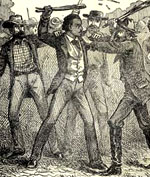A Life in the 20th Century
According to the Gilder Lehrman website:
"Distinguished American historian and counselor to presidents, Arthur M. Schlesinger, Jr. had a ringside seat to the most pivotal moments of the 20th century. Schlesinger's Journals: 1952-2000, the second volume of his journals, were published in 2007 to great acclaim. The Gilder Lehrman Institute presents a 2001 Historians' Forum that he delivered on the first volume of his journals, A Life in the Twentieth Century: Innocent Beginnings, 1917-1950. Schlesinger focuses particularly on how perceptions of progress, government, and human nature changed in the face of the two World Wars and the rise of government forms that challenged democracy."
